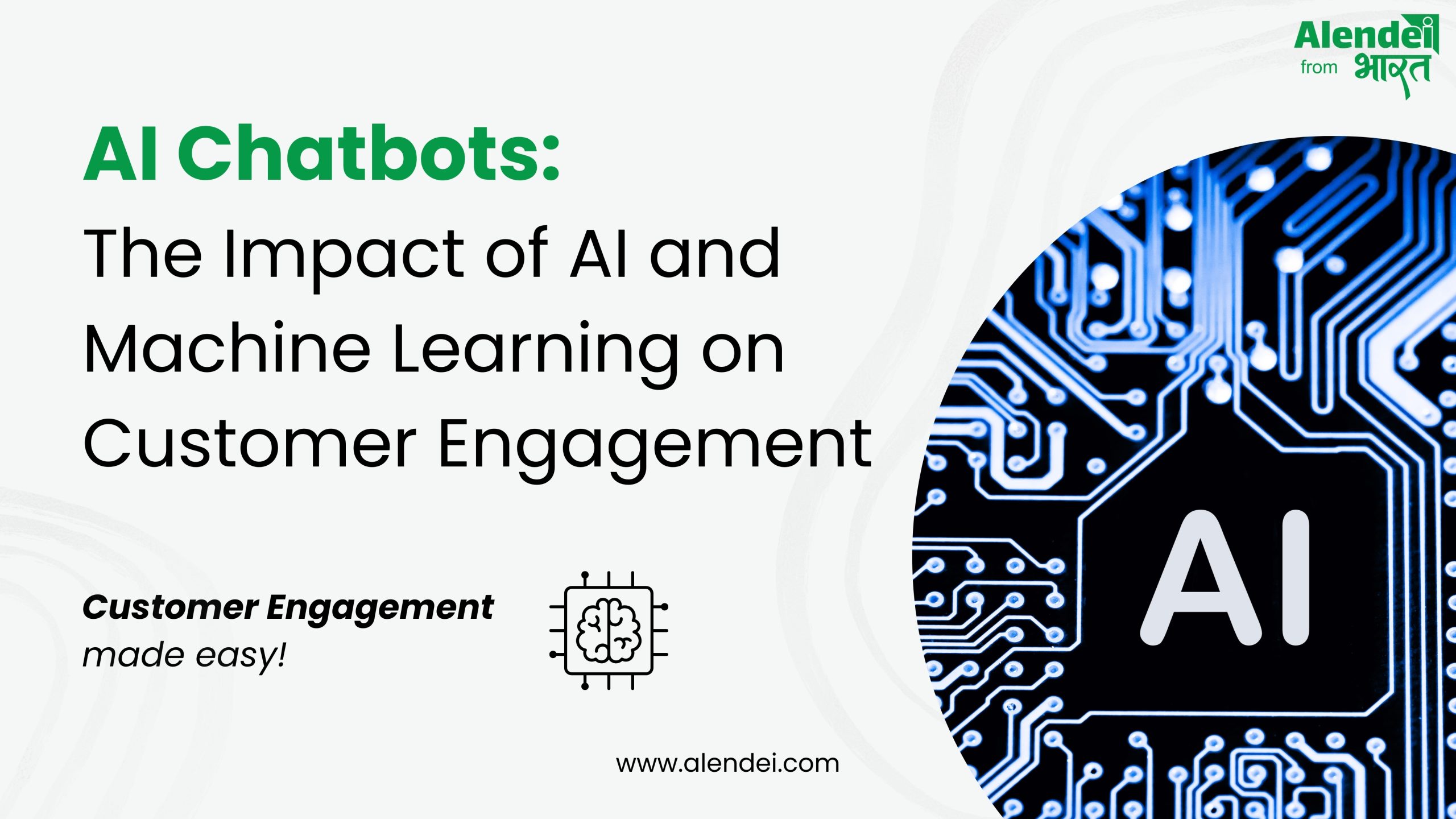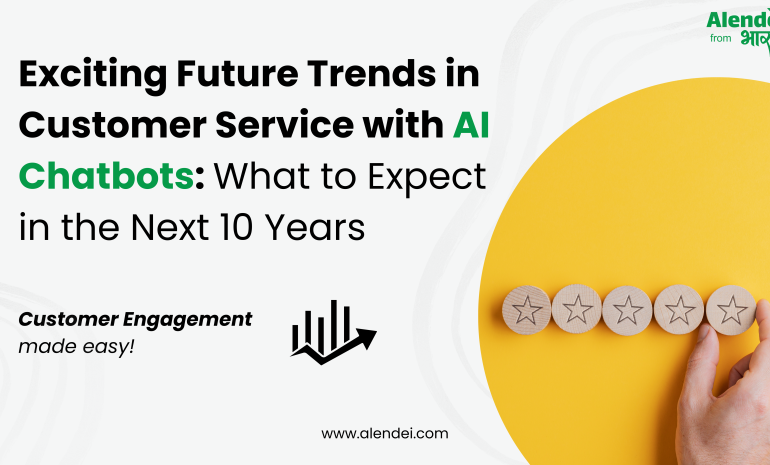The key to artificial intelligence has always been the representation.
Jeff Hawkins
In today’s digital age, businesses are constantly seeking ways to enhance customer engagement and satisfaction. One of the most significant advancements driving this transformation is the integration of AI chatbots and machine learning into customer service strategies. These technologies are not just buzzwords but powerful tools that can revolutionize the way businesses interact with their customers. In this blog, we will delve into how AI and machine learning are impacting customer engagement and why businesses should consider integrating these technologies into their customer service framework.
Understanding AI Chatbots and Machine Learning
What Is AI Chatbots?
AI chatbots are advanced software applications that use artificial intelligence and natural language processing (NLP) to simulate human conversation. These chatbots can understand, interpret, and respond to customer inquiries in real time, providing a seamless and efficient customer service experience. Unlike traditional chatbots that follow predefined scripts, AI chatbots continuously learn from interactions, improving their responses over time.
The Role of Machine Learning in Chatbots
Machine learning, a subset of artificial intelligence, involves the use of algorithms that enable computers to learn from and make decisions based on data. When applied to customer engagement, machine learning allows chatbots to analyze vast amounts of data, recognize patterns, and make informed predictions. This capability enhances the chatbot’s ability to provide personalized and accurate responses to customer inquiries.
Enhancing Customer Engagement with AI Chatbots
Real-Time Support with AI Chatbots
One of the most significant benefits of AI chatbots is their ability to provide real-time support. Customers today expect immediate responses to their inquiries, and delays can lead to frustration and dissatisfaction. AI chatbots can handle multiple inquiries simultaneously, ensuring that customers receive prompt assistance. This instant support enhances the overall customer experience and increases satisfaction.
Personalization and Customization
Machine learning algorithms enable AI bots to analyze customer data and provide personalized responses. By understanding customer preferences and behaviors, chatbots can tailor their interactions to meet individual needs. For example, an AI chatbot can recommend products based on a customer’s past purchases or browsing history, creating a more personalized shopping experience. This level of customization fosters stronger customer relationships and drives engagement.
AI Chatbots Provide 24/7 Availability
Unlike human agents, AI chatbots can operate around the clock, providing 24/7 support to customers. This continuous availability ensures that customers can receive assistance at any time, regardless of time zones or business hours. By offering round-the-clock support, businesses can cater to a global audience and improve customer satisfaction.
Reducing Operational Costs
Implementing AI chatbots can significantly reduce operational costs for businesses. By automating routine customer service tasks, chatbots free up human agents to focus on more complex issues. This efficiency reduces the need for large customer service teams, resulting in cost savings. Additionally, the scalability of AI chatbots allows businesses to handle increasing volumes of customer inquiries without incurring additional expenses.
Gathering Valuable Insights
AI chatbots can collect and analyze data from customer interactions, providing businesses with valuable insights into customer behavior and preferences. These insights can be used to refine marketing strategies, improve products and services, and enhance overall customer engagement. By leveraging the data collected by chatbots, businesses can make data-driven decisions that drive growth and success.
Case Studies: Success Stories with AI Chatbots
E-commerce: Enhancing Shopping Experiences
Several e-commerce companies have successfully integrated AI bots into their customer service strategies. For instance, a major online retailer implemented an AI chatbot to assist customers with product recommendations, order tracking, and returns. The chatbot’s ability to provide instant and personalized responses led to a significant increase in customer satisfaction and a reduction in cart abandonment rates.
Healthcare: Improving Patient Engagement
In the healthcare sector, AI chatbots are being used to enhance patient engagement and streamline administrative tasks. A leading healthcare provider introduced an AI chatbot to handle appointment scheduling, prescription refills, and patient inquiries. The chatbot’s 24/7 availability and real-time support improved patient satisfaction and reduced the workload for healthcare staff.
Financial Services: Streamlining Customer Support
Financial institutions are also leveraging AI bots to improve customer support. A prominent bank implemented an AI chatbot to assist customers with account inquiries, transaction histories, and fraud alerts. The chatbot’s ability to handle high volumes of inquiries simultaneously improved response times and customer satisfaction.
Overcoming Challenges with AI Chatbots
Ensuring Accuracy and Relevance
One of the challenges businesses face when implementing AI chatbots is ensuring the accuracy and relevance of responses. Chatbots must be trained with comprehensive and up-to-date data to provide accurate answers to customer inquiries. Continuous monitoring and updating of the chatbot’s knowledge base are essential to maintain high levels of accuracy.
Addressing Privacy Concerns
Data privacy is a critical concern when using AI chatbots. Businesses must ensure that customer data is handled securely and in compliance with privacy regulations. Implementing robust security measures, such as encryption and secure authentication, can help protect customer data and build trust.
Providing a Seamless Transition to Human Agents
While AI chatbots are highly effective at handling routine inquiries, there will be instances where human intervention is required. It is crucial to have a seamless transition from chatbot to human agent to ensure that complex issues are resolved efficiently. Integrating chatbots with customer service platforms can facilitate this transition and enhance the overall customer experience.
The Future of AI Chatbots in Customer Engagement
Advanced Natural Language Processing
As natural language processing technology continues to evolve, AI bots will become even more sophisticated in understanding and responding to customer inquiries. Advanced NLP capabilities will enable chatbots to interpret nuances in language, such as sarcasm and sentiment, providing more accurate and human-like responses.
Integration with Other Technologies
The future of AI chatbots lies in their integration with other emerging technologies, such as augmented reality (AR) and virtual reality (VR). For example, chatbots could provide real-time support within AR and VR environments, enhancing the customer experience in new and innovative ways.
Proactive Customer Engagement
Future AI chatbots will not only respond to customer inquiries but also proactively engage with customers. By analyzing customer behavior and preferences, chatbots can initiate conversations and offer personalized recommendations, creating a more interactive and engaging customer experience.
Conclusion
The impact of AI chatbots and machine learning on customer engagement is profound. These technologies offer real-time support, personalization, 24/7 availability, and valuable insights, transforming the way businesses interact with their customers. By overcoming challenges related to accuracy, privacy, and seamless transitions, businesses can fully leverage the benefits of AI chatbots to enhance customer engagement and drive success. As technology continues to advance, the potential for AI chatbots to revolutionize customer service and engagement will only grow.
Explore how Alendei can help you implement cutting-edge AI chatbots to transform your customer engagement strategy. Visit our website or get your free demo today!

